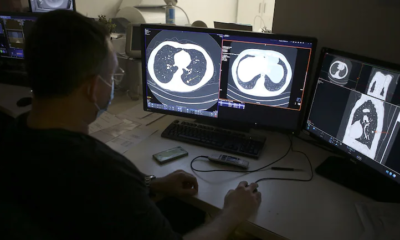

More in Health
-


Health
Govinda Rushed to Mumbai Hospital After Losing Consciousness
Govinda Rushed to Mumbai Hospital After Losing Consciousness Bollywood actor Govinda was admitted to CritiCare Asia...
-


Health
Dr Sivaranjani wins the war against the misleading ORS label products
In a landmark regulatory decision, the Food Safety and Standards Authority of India (FSSAI) has issued...
-


Health
Pewter Scrubs for Women in Medical Plus Scrub Set : Adar Uniforms
Plus Scrub Set for Everyday Comfort The Plus Scrub Set is perfect for women healthcare professionals...
-


Health
The Leafy Wellness™ Aims to Bridge Protein Gap with Clean, Plant-Based Nutrition
Pune, 1st Sept 2025 – The Leafy Wellness, a new entrant in India’s nutrition sector, has announced the...
-


Health
Ayurvedic herbs for menstrual cramps & distress by Toffease
A Flavorful Path to Women’s Wellness: Chumyum for Everyday Support Women’s health isn’t just about treating...


























